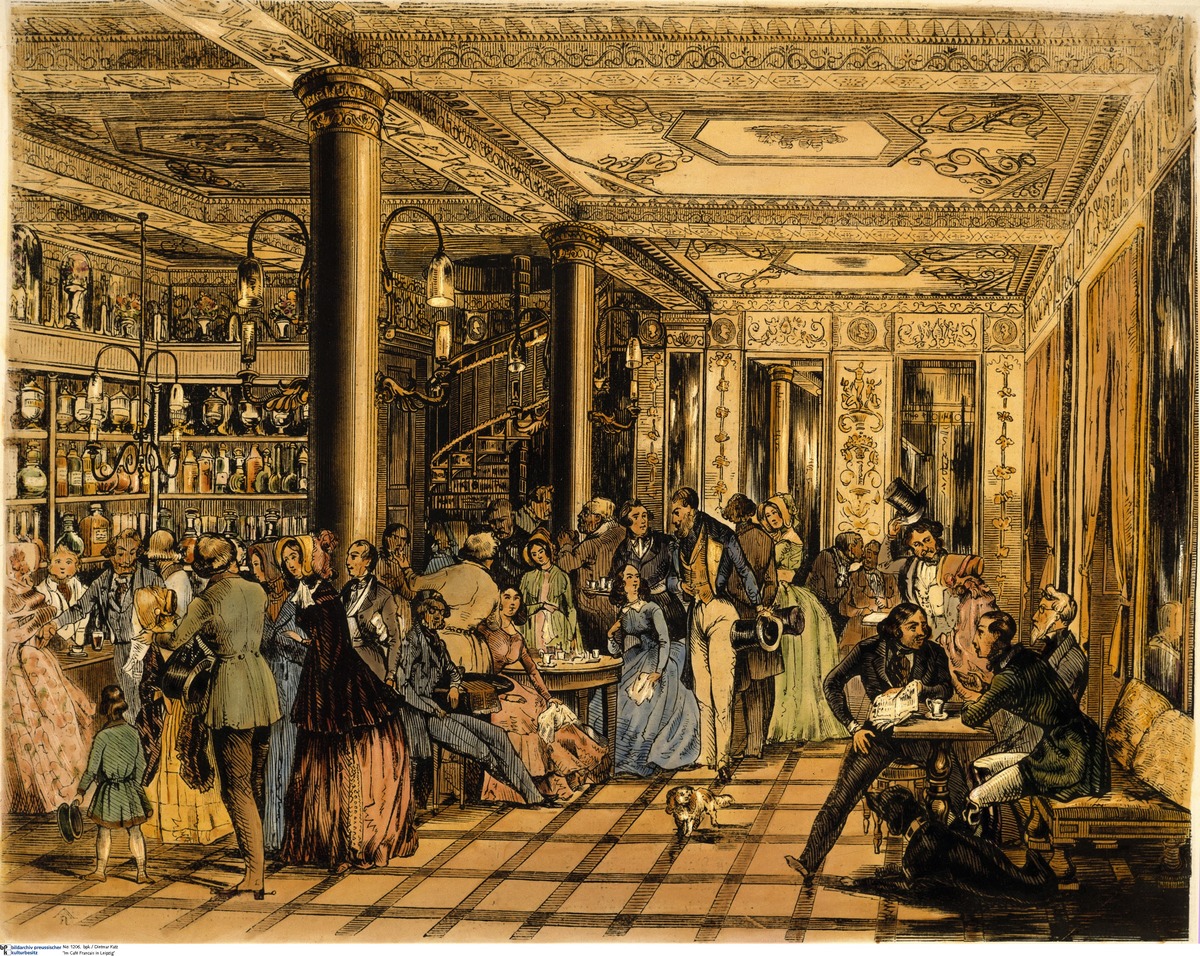Abstract
Introduced to Europe by the Ottomans in the seventeenth century, coffee houses went on to become centers of sociability and sites of literary, intellectual, and political exchange. Whereas the coffee house assumed particular importance within Viennese social and cultural life, its influence spread throughout and beyond continental Europe. In eighteenth-century Great Britain, for instance, the coffee houses played a significant role in literary production. Leipzig’s coffee house tradition dates back to the late seventeenth century. The Café Français (featured below) occupied an enviable spot in a prestige building on the city’s Augustus Square. As the image suggests, its architectural interior was no less distinguished, and its patrons dressed accordingly. Colored wood engraving by unknown artist, 1844.
